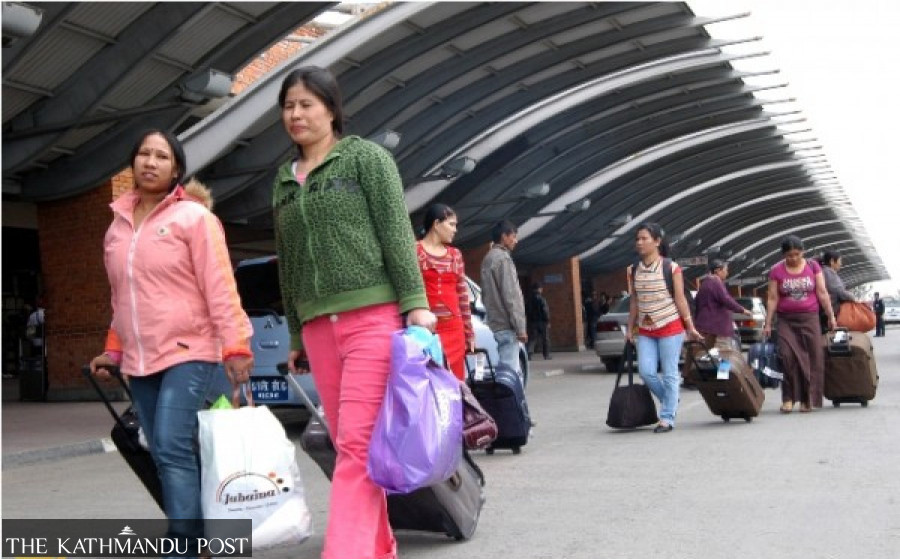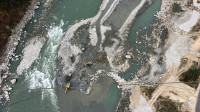National
Israel set to start taking in Nepali caregivers soon
As per an existing agreement between the two countries, 500 Nepali workers are expected to get employment in the Middle Eastern nation.
Chandan Kumar Mandal
Nepali job-seekers aspiring to work in Israel will soon be able to file their applications as the two countries are in the final leg of preparations for hiring Nepali migrants.
Nepal and Israel had signed an understanding in September last year to export Nepali workers to Israel. After inking the deal, both countries also signed the Implementation Protocol in January to put the agreement into action.
Now, nearly ten months after signing the agreement, Israel is likely to start taking in workers soon as the Nepali authorities have been waiting to receive demands for Nepali workers, possibly this week.
According to Krishna Prasad Dawadi, director-general of the Department of Foreign Employment, the government agency mandated to manage labour migration including Nepali workers’ departure to Israel under the new pact, Israel is likely to send demand letters very soon.
“We have completed the preparations on our part for implementing the deal and requested the Israeli authorities to start sending demand letters,” Dawadi told the Post. “As per our communications with the Israeli side, demand letters will start coming within a few days.”
The process of sending workers to Israel was affected for some months due to the second wave of the Covid-19 pandemic.
According to Dawadi, as soon as a demand letter is received, the department will issue a public notice asking aspirant candidates to submit their applications.
“During our discussions with the Israeli officials last Monday they told us that they would start sending demand letters soon after completing a few remaining tasks on their part,” said Dawadi.
The Israeli side has also shown interest in hiring more workers than the previous commitment, officials said.
As per the existing agreement, 500 Nepali workers, both men and women, are expected to get employment opportunities in Israel’s nursing care sector. Thirty percent of the 500 jobs will be allocated for men and 70 percent for women.
However, as per the recent discussion, Israeli authorities have said that they could hire around 1,000 Nepali workers, according to Dawadi.
“Their plan to hire around 1,000 workers is appreciable, but we cannot be sure about it until we receive the demand documents,” said Dawadi. “The jobs allotment ratio for men and women will remain 30:70.”
The Department of Foreign Employment has said that it has completed all the preparations for sending Nepalis to work in Israel’s nursing care sector. The department has prepared working procedures that will guide the overall process of sending the workers.
The working procedures, prepared by the Ministry of Labour, Employment and Social Security, guide the worker demand verification process, criteria for candidates, application procedures, and the process of selecting candidates, among other aspects.
As per the working procedures, the Nepali Embassy in Israel upon receiving the worker demand documents would verify the documents and forward them to the department in Nepal.
Nepali citizens between 25-45 years, who meet other criteria set by Israel, can apply for caregiver jobs. An eligible candidate should weigh at least 45kg, be no less than 1.5 metres tall, and be physically and mentally fit with specified educational qualifications.
They should also have received caregiver training and exhibit knowledge of the English language and decent character.
The department has also finalised the syllabus and modules for examinations and interviews. An online portal where candidates can submit their applications has also been readied, according to Dawadi.
Within 14 days of receiving a demand document, the department will publish job offers on its website and national newspapers along with an application deadline of a minimum of 21 days.
“Almost everything is ready, including the online portals. The questions for the examinations are also being readied,” said Dawadi.




 10.17°C Kathmandu
10.17°C Kathmandu














